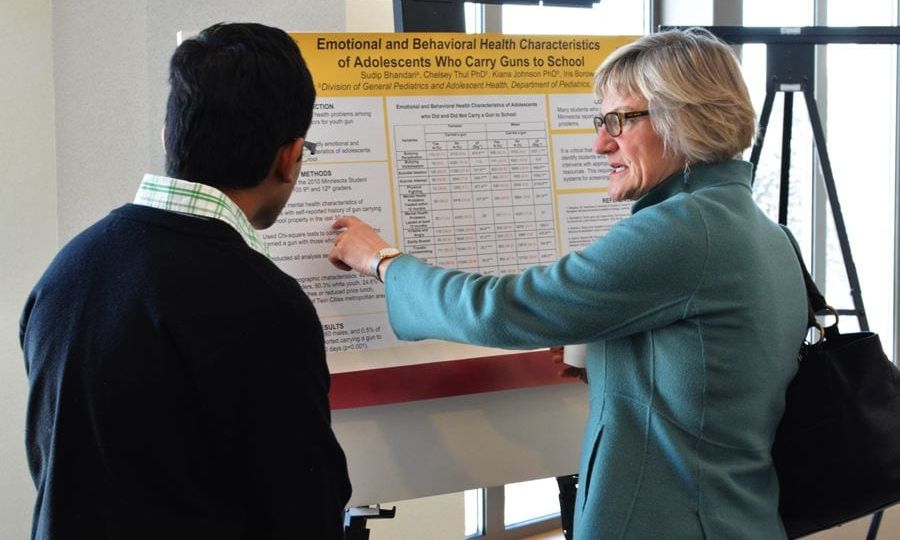
Throughout this past weekend, students had the opportunity to engage in St. Olaf’s Social Science Conference, focusing on promoting human rights. The conference, which ran from Thursday, Feb. 20 to Saturday, Feb. 22, aimed to bring together scholars, activists and anyone interested in creating concrete solutions to critical human rights issues through lectures, films and workshops.
“We are living in a time of global challenges that can lead to people feeling overwhelmed and powerless,” said Kris Thalhammer, professor of political science. “We wanted to create a forum that would not ignore the serious nature of injustices around the world, but also would give people hope and a sense of empowerment.”
The conference featured visits from prominent speakers, including Douglas Johnson, director of the Carr Center for Human Rights Policy at Harvard’s Kennedy School of Government, and Harvard Professor of Political Science Kathryn Sikkink.
“We wanted to bring in some speakers who use research and a wide range of talent and skills to have a positive impact on the world and to have them converse with people who could also contribute to promoting human rights,” Thalhammer said.
Kathryn Sikkink, Saturday’s keynote speaker, examined a recent move in the international community to more individual criminal accountability for human rights violators. Her book, “The Justice Cascade: How Human Rights Prosecutions are Changing World Politics,” explicates domestic and international prosecution methods that together form the “justice cascade.” Sikkink’s talk tied the book’s ideas to current human rights crises.
“[The question is] whether the justice cascade has any relevance at all for complex and intractable problems like the conflict in Syria today,” she said.
To answer that question, Sikkink shared a study comparing rates of repression with countries’ levels of individual criminal accountability for offenders. The study found fewer human rights violations in areas with higher prosecution rates. In short, enforcing international human rights law works. Sikkink put that claim in the Syrian context.
“The one option for accountability in Syria is a Security Council referral to the International Criminal Court,” she said.
Sikkink discussed how delayed jurisdiction could act as a deterrent in Syria whilekeeping all sides at the negotiating table. Her ideas drew a flurry of questions from the audience, covering everything from the crisis in South Sudan to the Israeli-Palestinian conflict.
The conference also included workshops that focused on taking “specific action both locally and globally [that] will further assist participants in developing their own place in promoting human rights,” according to the event description.
“Overall I think the conference got the campus talking and thinking, and I hope it will inspire some of us to take action,” Thalhammer said. “It also allowed for some networking and recruiting by our great student groups that are already working for justice, including Amnesty International, St. Olaf Leaders Aboloshing Slavery SOLAS, Oles for Justice in Palestine, the Edward Said House and others.”
SOLAS was one of the student groups presenting during the breakout sessions on Saturday. Several members gave a session on conscious consumerism, where they explained how Oles can learn about the ethical practices of companies and make smart decisions as buyers.
Many attendees expressed surprise at which companies had the most and least ethical practices. Used clothing stores, for example, were deemed the most ethical outlets for purchasing clothing.
Participants were also dismayed to learn that one organization’s website gave Malt-O-Meal a “C” grade on ethical consciousness. While the data was daunting, SOLAS members emphasized that many methods exist for resisting unethical practices.
“Something we want to emphasize with our campaign is educating people on what they can buy that’s Fair Trade,” said SOLAS member Madison Goering ’15.
Even if consumers cannot afford more expensive Fair Trade goods, Goering said, they can take other measures like promoting brands that engage in good practices and educating their fellow consumers about ethical business practices and Fair Trade goods.
–Amy Lohmann, Solvejg Wastvedt, and Kate Fridley

